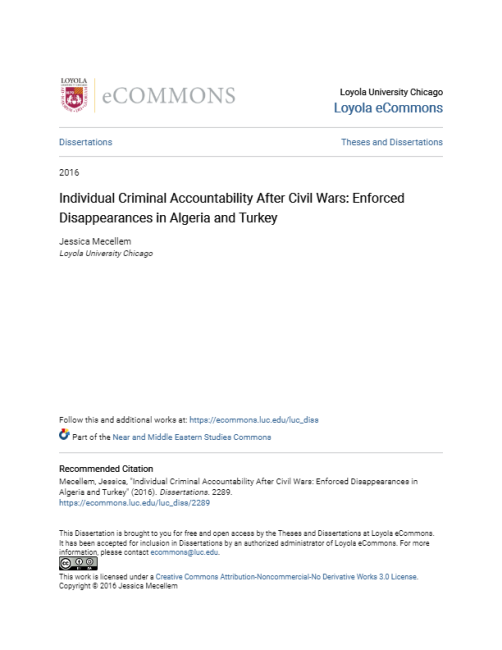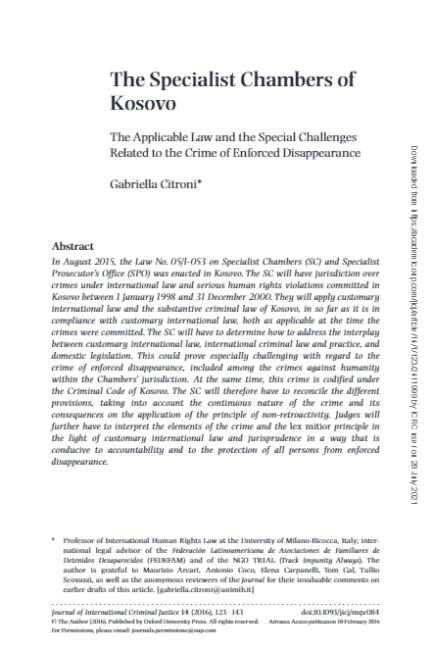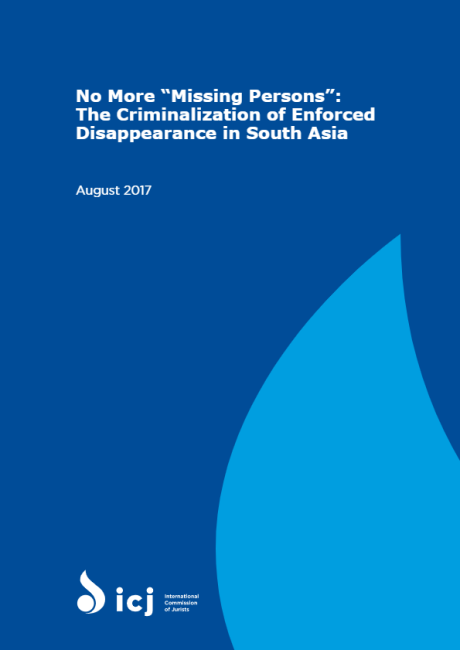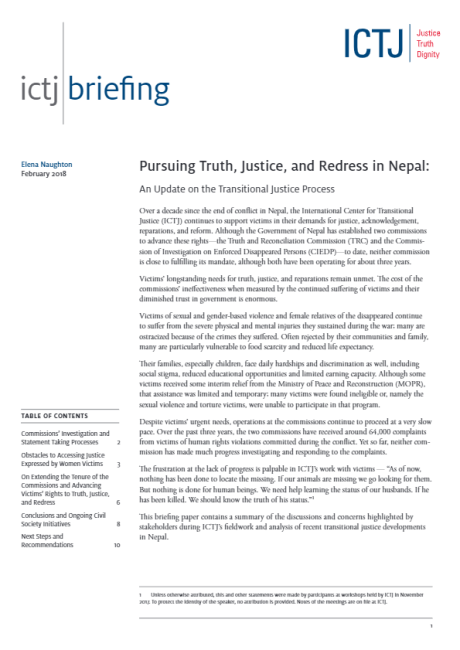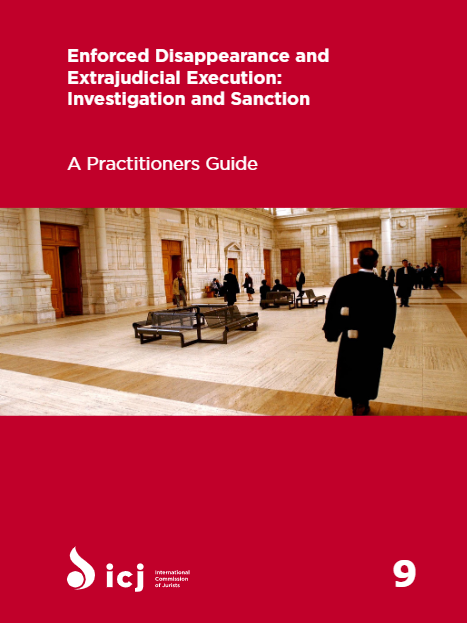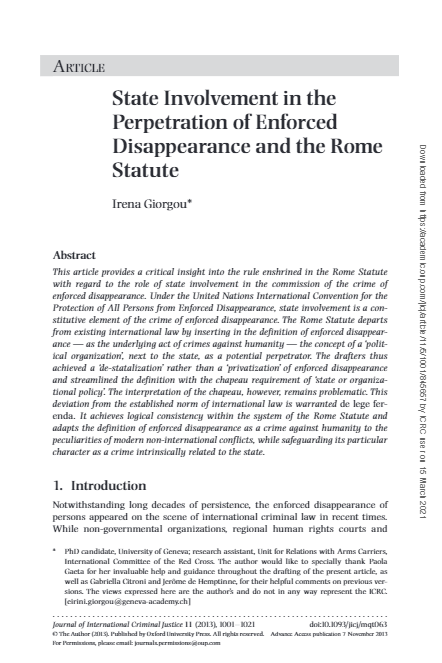
State Involvement in the Perpetration of Enforced Disappearance and the Rome Statute
This article provides a critical insight into the rule enshrined in the Rome Statute with regard to the role of state involvement in the commission of the crime of enforced disappearance. Under the United Nations International Convention for the Protection of All Persons from Enforced Disappearance, state involvement is a constitutive element of the crime of enforced disappearance. The Rome Statute departs from existing international law by inserting in the definition of enforced disappearance — as the underlying act of crimes against humanity — the concept of a ‘political organization’, next to the state, as a potential perpetrator. The drafters thus achieved a ‘de-statalization’ rather than a ‘privatization’ of enforced disappearance and streamlined the definition with the chapeau requirement of ‘state or organizational policy’. The interpretation of the chapeau, however, remains problematic. This deviation from the established norm of international law is warranted de lege ferenda. It achieves logical consistency within the system of the Rome Statute and adapts the definition of enforced disappearance as a crime against humanity to the peculiarities of modern non-international conflicts, while safeguarding its particular character as a crime intrinsically related to the state.


